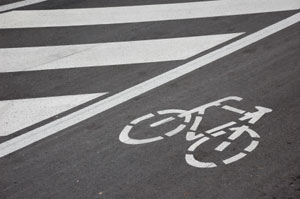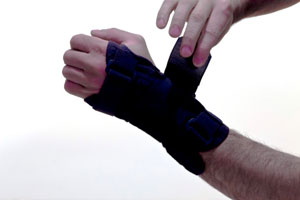Protect Your Rights When You Are Injured on a Bicycle
 According to a recent study, nearly 20,000 bicyclists were injured in collisions with motor vehicles during a ten year period. Not surprisingly, 81 of those accidents proved fatal to the bicyclist.
According to a recent study, nearly 20,000 bicyclists were injured in collisions with motor vehicles during a ten year period. Not surprisingly, 81 of those accidents proved fatal to the bicyclist.
The Laws Governing Bicycles and Riders in New Jersey
Under New Jersey law, a bicycle is legally viewed as a vehicle, with bicycle operators enjoying the same privileges and responsibilities as other motorists. Accordingly, when you are on the road, you generally have equal legal rights and access as those in motor vehicles.
There are, however, some additional requirements that apply specifically to bicyclists. The laws state that, when riding a bicycle on the road, you must be as close to the right roadside as is “practicable.” You must also use reasonable care when passing a parked vehicle or one moving in the same direction. New Jersey law also mandates that you wear an approved safety helmet.
Bicycle Accidents—Causes and Responsibility
Studies repeatedly show that, in most collisions involving motorists and bicyclists, the motorists failed to use appropriate caution, and were at fault. Typical causes of bicycle accidents include:
- Drivers opening a door to a parked car in front of a bicyclist
- Drivers turning left into the path of a bicyclist who has the right of way
- Drivers failing to allow reasonable distance between the vehicle and the bicycle when passing
- Drivers passing bicyclists at an excessive rate of speed
- Drivers operating a vehicle while drunk, distracted or impaired
Bicyclists may also suffer injury because of negligent maintenance of roadways, or road conditions. For example, a road may have construction gravel, potholes or other obstructions. Stop signs may be down or hidden by trees. Bike lanes may be improperly marked, or speed limits may be inappropriate around bike lanes.
Additionally, bicycle accidents can stem from defects in the design, manufacture or distribution of a bike or its components. A fork may break, chains may be defective or brakes may not work properly.
Contact Taylor & Boguski
At Taylor & Boguski, we bring more than 70 years of combined legal experience to injured people throughout New Jersey. For a free initial consultation, contact our office online or call us at 856-234-2233.


 Under the laws of New Jersey, when you are hurt during the course of employment, you have a right to pursue monetary compensation for lost wages, medical expenses and even job retraining, if you can’t return to your previous job. The injury, though, does not have to arise from a single traumatic event—a fall or the malfunction of a machine or tool. Often, the most debilitating injuries are those that develop over time, from standing, bending, lifting, squeezing or pinching over and over and over.
Under the laws of New Jersey, when you are hurt during the course of employment, you have a right to pursue monetary compensation for lost wages, medical expenses and even job retraining, if you can’t return to your previous job. The injury, though, does not have to arise from a single traumatic event—a fall or the malfunction of a machine or tool. Often, the most debilitating injuries are those that develop over time, from standing, bending, lifting, squeezing or pinching over and over and over.  If you are involved in a
If you are involved in a